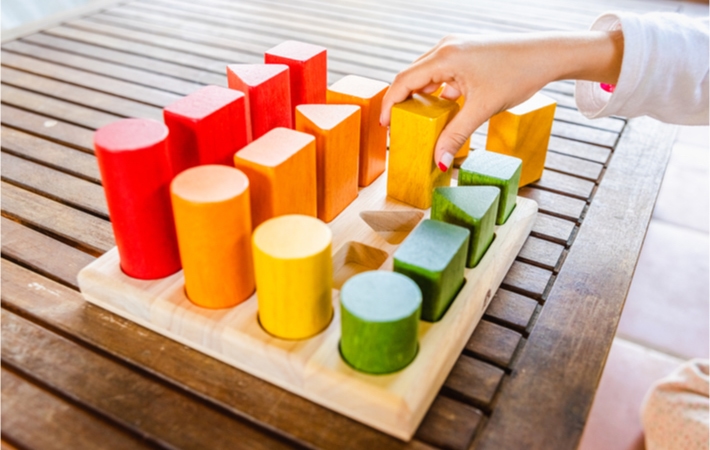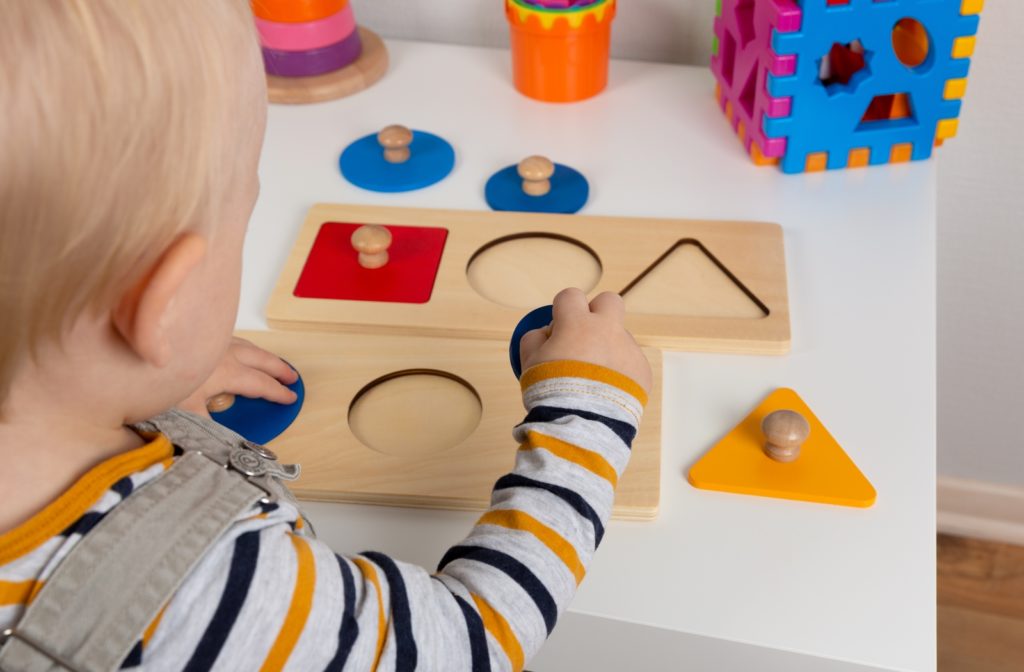Montessori is a method of teaching developed by Dr. Maria Montessori, who opened her first Montessori school in 1907. Her approach to teaching children involves hands-on learning through independence, choice, and collaborative play.
Practicing the Montessori method at school and home will continue to build on that critical early foundation to become a confident and lifelong learner. However, introducing new Montessori activities can seem daunting for some parents.
There are some things to keep in mind when you start so that children can benefit from these activities and the learning environment. Let us tackle this challenge by exploring the steps to introducing Montessori activities.
What Are Montessori Activities
Montessori activities are tasks or work that a child completes using specific materials. While the child might see it as play-based, the purpose is learning and development.
Montessori activities include all areas such as daily life, language, hand-eye coordination, music, movement, art, and food preparation. The structure of the activities depends on the age group of the child.
Montessori activities are broken down into different age groups or planes of development as children get older. Regardless of the age group, all Montessori activities encourage curiosity, creativity, and learning through observation.
Infancy Ages 0–6: Environmental Learning
From 0 to 3 years, children explore with their senses and the surrounding environment. From 3 to 6 years, they start using their hands and learn from materials with some independence.
Montessori activities at this stage can include:
- Natural materials, rattles, soft grasping toys, and mobiles for babies
- Sorting by colour or size, open and close, natural textures, and washing or cleaning activities for toddlers and preschoolers
Childhood Ages 6–12: Social & Societal Learning
From kindergarten onwards, children learn by incorporating academics with social experiences. Cooperation is still very much a part of learning.
Montessori activities at this stage can include math, language, and practical life:
- Hygiene such as using the restroom, washing hands, preparing and serving food, and cleaning up
- Learning how to use buttons, zips, and tying shoelaces
- Safely use scissors and other tools in the classroom and at home
- Number and memory games
- Alphabets, songs, and storytime
- Art

Steps to Introduce Montessori Activities
Montessori activities go along with a child’s developmental needs. Apart from the materials used, you also need to present how to perform the task, observe, and respond to them. Here are a few things to keep in mind when introducing Montessori activities.
Invite the Child
The first step to introducing a child to a Montessori activity is to invite them to participate. Showing them where the materials are found, such as on a shelf, will teach them to return them to their place and independently work on the activity when ready.
Create a Workspace
Select a workspace: this could be on the floor or at the table. The first time you can demonstrate taking the materials off the shelf and carrying them to the workspace.
Maintain Eye Contact
Maintaining eye contact lets children know you are present and lets you know they are ready. Sit on the child’s dominant side so they can mimic your movements.
Show More Talk Less
Demonstrate with slow movements how to complete the task. Move from left to right and top to bottom in preparation for writing and later reading.
Repetition is almost always necessary, as your child is doing this for the first time and may take a few tries. Also, use fewer words as possible. The aim is to keep their focus on the materials, not on you.
Offer the Child a Turn
Invite the child to have a turn. If they say no and are not interested, take the activity back to the shelf together. They can always try another time.
If they are interested, allow them to replicate your movements without interruption. Smile to offer reassurance. Once they have completed the activity or repeated it many times, they can return it to the shelf.
Benefits of Montessori Activities
The benefits of Montessori activities aren’t only for childhood. Critical thinking, problem-solving, and creativity developed through Montessori education stay with them for life.
The main benefits include the following:
- Learning focuses on developmental stages
- Collaborative play and collaboration
- Child-centred and hands-on approach
- Self-directed and independent learning
- Learning facilitated environment
Learn by Doing
Montessori activities can start from infancy and continue throughout childhood. What’s more important than the materials you use to teach is how you teach.
Mosaic Montessori provides an early school experience with an environment that fosters learning through collaboration, cooperation, respect, and individual interests. Contact us to enquire about Montessori education and discuss the educational goals for your child.


